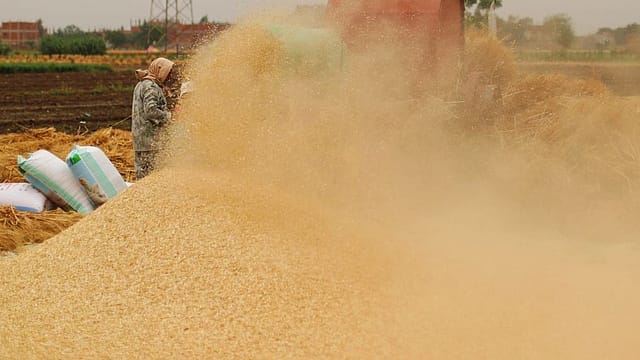Govt curbs on wheat flour export as shipments rise 200% in April-July
ADVERTISEMENT

Prime Minister Narendra Modi-led Cabinet Committee on Economic Affairs (CCEA) has approved the proposal to amend the export exemption policy on wheat or meslin flour to curb the increasing shipments from India. The decision will allow restrictions on the export of wheat flour to curb its high prices in the country.
The government’s move to ban wheat flour exports comes months after the Centre banned the export of wheat to ensure food security at a time when global supply chains had started crumbling amid the Russia-Ukraine war.
The CCEA approval for the amendment has come a month after the government imposed some restrictions on the outbound shipments of wheat flour on July 12, 2022. Under this framework, exporters dealing in wheat flour needed to seek an inter-ministerial committee’s approval before sending any outbound shipment.
The commerce and industry ministry says the Russia-Ukraine war has led to a spike in wheat prices in the domestic market due to global supply-chain disruptions. "Russia and Ukraine are the major exporters of wheat accounting for around 1/4th of the global wheat trade. The conflict between them led to the global wheat supply chain disruptions increasing the demand for Indian wheat. As a result, the price of wheat in the domestic market showed an increase," says the ministry.
However, the export curbs also led to an increase in wheat flour demand in foreign markets. According to the government, wheat flour exports from India have registered a 200% growth from April-July 2022, compared to the corresponding period in 2021. Wheat is the third most-produced cereal - after rice and maize - and the second most produced for human consumption.
The increased demand for wheat flour in the international market has jacked up the wheat flour prices in the domestic market.
The ministry says earlier, that there was a policy not to prohibit or put any restrictions on the export of wheat flour. Therefore, a partial modification of the policy was required by withdrawing the exemption from the ban or restrictions on the export of wheat flour.
The government has taken a number of steps to curb key food items like wheat, flour, and wholemeal atta. Earlier this month, the Centre restricted the export of maida (wheat flour), suji (semolina), and wholemeal atta from August 14.
On May 13, the Centre restricted wheat exports to manage the overall food security situation in India. The decision was taken to support the needs of neighbouring and vulnerable countries adversely affected by the sudden changes in the global market for wheat and those unable to access adequate wheat supplies.
India is the second-largest wheat-producing country after China. The world’s largest wheat producer, China, has yielded more than 2.4 billion tonnes of wheat over the last two decades, making up roughly 17% of total production from 2000-2020, shows the IMF data. Over the last two decades, India has produced 12.5% of the world’s wheat. Like China, India keeps most of its wheat domestic because of significant food demand across the country.